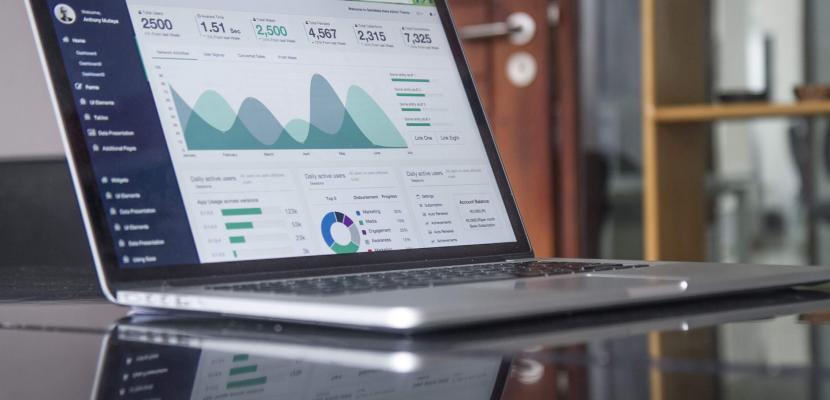Image

Distance Learning and Certification Mark in support of limiting the spread of the coronavirus
Published on 28 January 2022

Greece
Kentriki Makedonia
This is the good practice's implementation level. It can be national, regional or local.
About this good practice
The rapidly imposed and strict lockdown, which was forced on March 2020, included cultural and tourist sector and induced actions for the production of health and safety protocols. After relevant legal framework was well established by the Greek government, the Region of Central Macedonia (RCM) developed measures for limiting the spread of coronavirus and ensuring protection of both employees in tourism sector and visitors in the region.
RCM with its Lifelong Learning Center applied a free of charge, mandatory, distance learning program in COVID-19 health protocols, with the use of ICT tools, for staff of tourist accommodation enterprises and organized tourist camps. The content focused on: Sources and modes of transmission; Development of case management plan for a suspicious COVID-19 case; Procedures for informing people in charge of the accommodation and customers themselves; Methods and communication approach of visitors; Behavior and actions in case of COVID-19 staff illness; Methods and practices of cleaning and disinfecting identified areas, based on risk and probability of transmitting COVID-19; Compliance with basic measures to prevent the transmission of COVID-19.
Finally, the Certification Mark “Health First” was introduced for tourist enterprises, which should be hanged in the common reception area of each accommodation and would prove that the company complies with the Covid-19 health protocols (mark issuance processed via web application/service).
RCM with its Lifelong Learning Center applied a free of charge, mandatory, distance learning program in COVID-19 health protocols, with the use of ICT tools, for staff of tourist accommodation enterprises and organized tourist camps. The content focused on: Sources and modes of transmission; Development of case management plan for a suspicious COVID-19 case; Procedures for informing people in charge of the accommodation and customers themselves; Methods and communication approach of visitors; Behavior and actions in case of COVID-19 staff illness; Methods and practices of cleaning and disinfecting identified areas, based on risk and probability of transmitting COVID-19; Compliance with basic measures to prevent the transmission of COVID-19.
Finally, the Certification Mark “Health First” was introduced for tourist enterprises, which should be hanged in the common reception area of each accommodation and would prove that the company complies with the Covid-19 health protocols (mark issuance processed via web application/service).
Expert opinion
During the COVID pandemic, many cultural and tourist institutions were faced with the challenge to rapidely implement new rules for the compliance with new health regulations. With the help of a distance learning programme, a large number of cultural and tourist institutions could be trained and prepared for the new situation. The investment in this successful training programme can inspire other regions to introduce and deploy new distance learning programmes, also covering other life-long learning subject.
Works at
Interreg Europe Policy Learning Platform
Resources needed
The development and conduction of the training program involved an interdisciplinary team of experts/trainers (various specialties of doctors, health supervisors of regional and local authorities’ executives, hygienists, tourist companies with training experience).The budget required was 60.000 (€).
Evidence of success
Measurable outputs refer to the number of persons (3.303) that participated in the distance learning programmes (3.252 from tourist accommodation, 51 from organized tourist camps) and to registrations.
Good cooperation among stakeholders resulted in direct dissemination of knowledge to participants, while the distance learning programmes acted as forerunner for 2 e-trainings (30 hrs, 30 trainees from restaurants, hotels, coffee bars) applied by Interreg IPA CBC Project ToCulter.
Good cooperation among stakeholders resulted in direct dissemination of knowledge to participants, while the distance learning programmes acted as forerunner for 2 e-trainings (30 hrs, 30 trainees from restaurants, hotels, coffee bars) applied by Interreg IPA CBC Project ToCulter.
Potential for learning or transfer
Distance learning was effective and proved a success key with positive outcomes due to its advantages (easily accessible convenience, lower costs, learning of participants).The use of ICT confirmed that online tools are useful to be utilized by trainers and trainees.Distance learning as a mode of education/training is one of the solutions to continue the learning of health safety protocols in the COVID-19 pandemic times.
Other key issues: well-established legal framework; obligatory, free of charge, attendance of educational program; connection of training with safe and legal operation of enterprises; dissemination so that message is received by beneficiaries and indirectly raise awareness to public; partnering with organizations and relevant stakeholders.
COVID-19 pandemic revealed that safety measures and protocols must be thoroughly examined, should be considered as an ongoing effort and should have the readiness needed each time; the need preparedness plans to be updated emerged.
Other key issues: well-established legal framework; obligatory, free of charge, attendance of educational program; connection of training with safe and legal operation of enterprises; dissemination so that message is received by beneficiaries and indirectly raise awareness to public; partnering with organizations and relevant stakeholders.
COVID-19 pandemic revealed that safety measures and protocols must be thoroughly examined, should be considered as an ongoing effort and should have the readiness needed each time; the need preparedness plans to be updated emerged.
Further information
Website
Good practice owner
You can contact the good practice owner below for more detailed information.
Organisation
Regional Development Fund of Central Macedonia

Greece
Kentriki Makedonia
Contact
Project Manager
